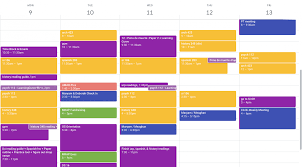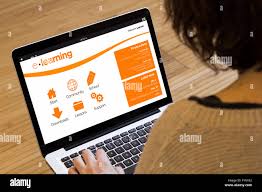Studying solo? A solid self-learning plan is key. Whether you're tackling tests, boosting abilities, or exploring new topics for fun, try these tips to make your study time count. They'll help you learn better and faster.
Set Clear Goals
 A person writing down goals in a notebook with specific, measurable, achievable, relevant, and time-bound (SMART) criteria.
A person writing down goals in a notebook with specific, measurable, achievable, relevant, and time-bound (SMART) criteria.
Well-defined objectives provide focus and motivation, turning abstract ideas into concrete actions. For effective goal-setting, use the SMART criteria: Specific, Measurable, Attainable, Relevant, and Time-bound. For instance, "Grasping calculus differentiation" is more precise than "Studying calculus," while "Solve 10 practice questions daily" is quantifiable. Set practical goals based on your time and resources, ensure they align with your broader aims, and set deadlines to maintain momentum.
Create a Study Schedule
 A calendar with study sessions blocked out, including time for breaks and flexibility.
A calendar with study sessions blocked out, including time for breaks and flexibility.
A well-constructed plan will help you use your time wisely and avoid last-minute scrambles. Target the most difficult or important topics first and set aside specific times for studying. Consistency is key, so stick to the plan as much as possible. Schedule short breaks to avoid fatigue, such as using the Pomodoro technique (work for 25 minutes, then take a 5-minute break)Leave room for the unexpected.
Optimize Your Study Environment

A clean, organized desk with a comfortable chair, good lighting, and study materials neatly arranged.
A suitable environment reduces distractions and improves focus. Pick a quiet, comfortable spot with few interruptions. Keep your study materials tidy and accessible, and ensure adequate lighting to reduce eye fatigue. Use digital tools like Forest for concentration or Todoist for task organization to further improve your study space.
Active Learning Techniques
 A person explaining a concept to a group of people using a whiteboard, illustrating the active learning process.
A person explaining a concept to a group of people using a whiteboard, illustrating the active learning process.
Active learning enhances retention and comprehension compared to passive reading. Recap what you've studied in your own words, and explain ideas to others or pretend to teach them. Teaching reinforces your understanding. Regularly tackle practice problems or apply your knowledge to real situations. Use flashcards for quick reviews and to strengthen memory.
Utilize Resources Effectively
 A laptop screen displaying an online course platform.
A laptop screen displaying an online course platform.
Access to various resources can offer different viewpoints and deeper insights. Read extensively from recommended texts and reliable sources, and use online courses on platforms like Coursera, edX, and Khan Academy. Join or create study groups to benefit from collaborative learning, and seek assistance from tutors or mentors when necessary.
Regular Review and Self-Assessment
 A person taking a quiz on a tablet, with notes and textbooks nearby for reference.
A person taking a quiz on a tablet, with notes and textbooks nearby for reference.
Frequent review strengthens retention, while self-evaluation measures comprehension and advancement. Often revisit your summaries, take practice tests to check your grasp, and spot weak points. Use feedback from mock exams or peer critiques to steadily enhance your knowledge.
Stay Healthy and Motivated
 A balanced meal, exercise equipment, illustrating the importance of physical and mental well-being.
A balanced meal, exercise equipment, illustrating the importance of physical and mental well-being.
Physical and mental health are vital for long-term productivity. Get enough sleep to boost brain function, exercise regularly to improve mood and energy, and eat well-balanced meals to maintain focus. Try mindfulness or meditation to lower stress, and treat yourself when you hit goals to stay driven.
A key takeaway
Productive self-study requires a blend of planning, active engagement, and self-care. By setting clear goals, creating a structured schedule, optimizing your environment, employing active learning techniques, utilizing resources, regularly reviewing, and maintaining your health and motivation, you can maximize your study efficiency and achieve your academic or personal learning goals.
Suggested Video:
This video provides additional tips and strategies for effective studying.




Comments